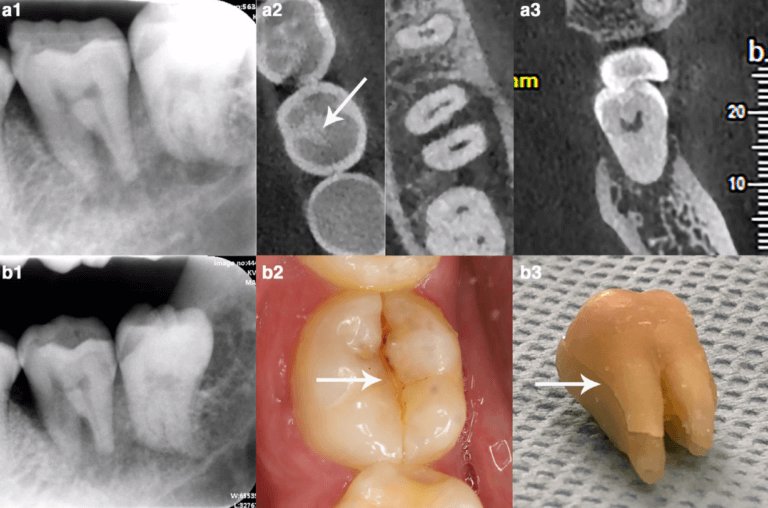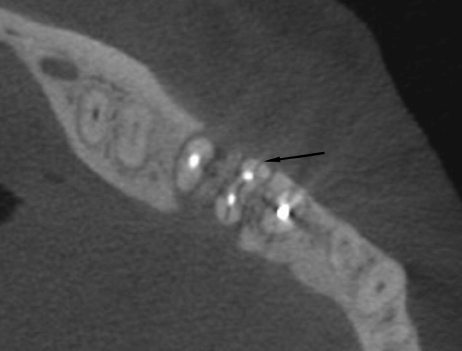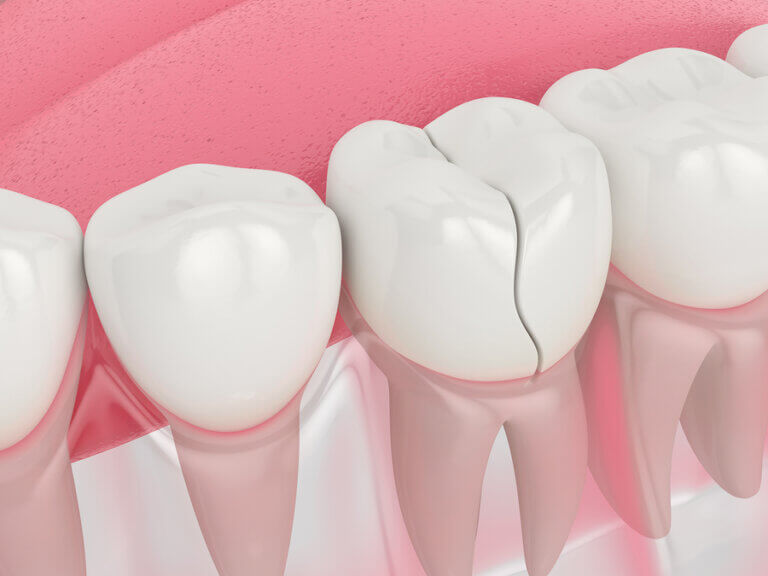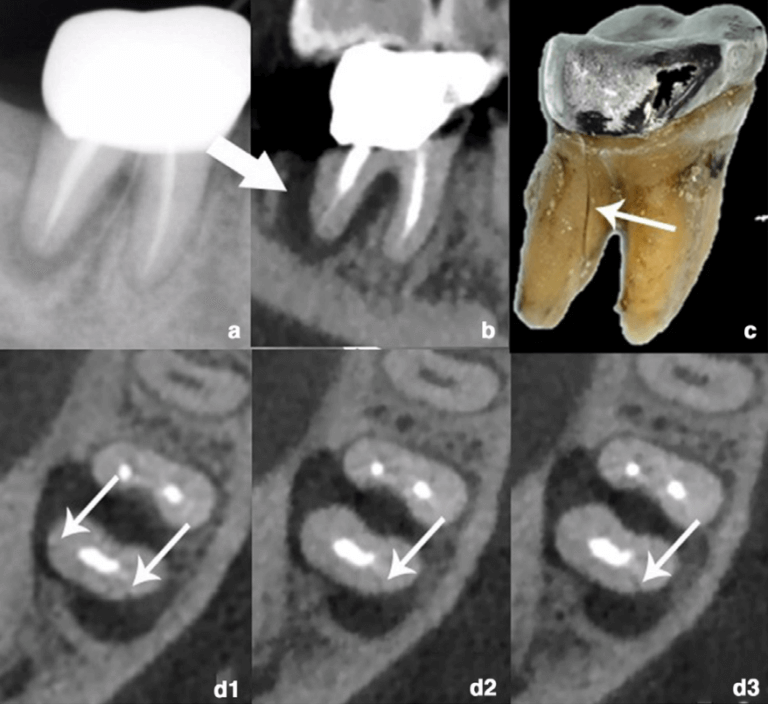CBCT Scan For Cracked Tooth

Cracked teeth pose a significant challenge in the field of dentistry, often presenting with elusive symptoms that can be difficult to diagnose through conventional means. However, advancements in imaging technology have revolutionized the way dentists detect and assess such intricate dental issues. Cone Beam Computed Tomography (CBCT) scans have emerged as a powerful tool in the armamentarium of dental professionals, providing detailed three-dimensional images that offer unparalleled insights into the structure and integrity of teeth. Before you deciding on whether a CBCT Scan for Cracked Tooth is right for you, there are some things you should know:
Table of Contents
If you have any further questions about CBCT Scans at Oral Radiology Toronto, please contact us.
What Are CBCT Scans?
Cone Beam Computed Tomography (CBCT) is a revolutionary x-ray imaging technology, providing three-dimensional views of the patient’s dental anatomy, including teeth, bones, nerves, and surrounding tissues. Unlike traditional two-dimensional X-rays, CBCT captures high-resolution, cross-sectional images by utilizing a cone-shaped beam of ionizing radiation.
The result is a detailed and accurate representation that enables dental professionals to assess anatomical structures with precision, offering a more comprehensive understanding of the patient’s oral health. This remarkable imaging modality provides dental professionals with an unprecedented level of anatomical detail, enabling precise diagnosis, treatment planning, and evaluation of various dental conditions, including cracked teeth.

What Is A Cracked Tooth?
A cracked tooth refers to a common dental condition characterized by a fracture or break in the tooth’s structure. These cracks can vary in severity, ranging from superficial craze lines that affect only the enamel to more extensive fractures that extend into the deeper layers of the tooth, such as the dentin or pulp. Cracked teeth can result from various factors, including traumatic injuries, biting down on hard objects, bruxism (teeth grinding), large dental fillings, or age-related wear and tear. Unlike a simple cavity or chip, cracked teeth often present with more subtle and intermittent symptoms, making them challenging to diagnose through visual examination alone. Symptoms may include sharp pain while biting or chewing, sensitivity to hot or cold temperatures, discomfort when releasing biting pressure, or occasional pain that comes and goes. If left untreated, cracked teeth can lead to further damage, infection, and eventual tooth loss. Therefore, prompt diagnosis and appropriate management are crucial to preserving the tooth’s structure and function.

Why Do I Need A CBCT Scan For A Cracked Tooth?
While traditional dental X-rays, such as bitewing or periapical radiographs, are valuable tools in diagnosing dental issues, they may not always provide sufficient information to accurately assess the extent and severity of a cracked tooth. Unlike two-dimensional X-rays, which offer limited views of the tooth and surrounding structures, CBCT scans provide comprehensive three-dimensional images that offer unparalleled detail and clarity. This enhanced imaging capability is particularly beneficial when evaluating complex dental conditions like cracked teeth.
CBCT scans allow dental professionals to visualize the crack’s precise location, depth, and direction within the tooth, as well as its relationship to nearby structures such as the root canal, surrounding bone, and adjacent teeth. This level of detail is invaluable for determining the appropriate treatment approach and predicting the prognosis of the cracked tooth. Additionally, CBCT scans can reveal other underlying issues that may contribute to or result from the cracked tooth, such as root fractures, bone loss, or the presence of infection.
By accurately assessing the extent of the crack and identifying any associated complications, CBCT scans empower dentists to develop customized treatment plans tailored to each patient’s unique needs. Whether it involves conservative measures like bonding or sealing the crack, endodontic therapy (root canal treatment), or more extensive restorative procedures like dental crowns or implants, CBCT imaging helps ensure precise diagnosis and optimal outcomes for patients with cracked teeth. Overall, the use of CBCT scans enhances diagnostic accuracy, treatment planning, and ultimately, the quality of care provided to individuals with cracked teeth.

How Much Does A CBCT Scan Cost For A Cracked Tooth?
At Oral Radiology Toronto, we provide quick and convenient dental CBCT scans for busy dentists and patients in the Toronto area. Our CBCT scans are useful for assessing the teeth, their supporting structures, the mandible and maxilla up to the floor of the nose.
Our competitively priced dental CBCT scans are professionally reviewed and interpreted by a Canadian licensed Oral Radiologist.
Prices are based on the size of CBCT volume:
- Small Field CBCT (most dental cases; 5x5cm): $234
- Medium Field CBCT : $315.90
- Large Field CBCT (8x8cm): $399
- Panoramic X-Ray: $84
Normal CBCT report turnaround time is up to 10 business days. Expedited reporting (2 business days) is an extra $50.
Please note that we do NOT offer field of views larger than 8x8cm or imaging of structures outside the maxilla and mandible, such as the temporomandibular joints, paranasal sinuses, the cervical spine, the neck and the airway spaces (i.e. craniofacial CT scan).
How Do I Get A CBCT Scan For A Cracked Tooth?
- For Referring Dentists: Refer a dental patient for a CBCT Scan using our Online Referral Form.
- For Dental Patients: Schedule a CBCT scan visit at Oral Radiology Toronto using our Online Appointment Booking System.
